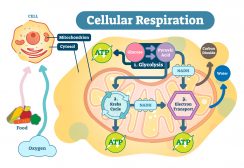Definition
noun
A type of peritonitis that is confined to a demarcated region of the peritoneal cavity
Supplement
Peritonitis pertains to the inflammation of the peritoneum. Peritoneum is the smooth serous membrane that lines the cavity of the abdomen and covers most of the abdominal organs. Peritonitis is marked by exudation in the peritoneum of serum, fibrin, cells, and pus. It is often accompanied by an abdominal pain and tenderness, as well as constipation, vomiting, and moderate fever. Peritonitis may be localized or generalized.
Localized peritonitis is a type of peritonitis that is confined to a demarcated region of the peritoneal cavity. It often surrounds a focal lesion. For instance, pancreatitis results in inflamed peritoneum that is localized.
Localized peritonitis is often less life-threatening than the generalized type. The generalized peritonitis, in comparison is, affecting the entire abdomen. The abdominal tenderness is diffuse and the inflammation is widespread. Nevertheless, a localized peritonitis may develop into generalized peritonitis.
Localized peritonitis in the right lower quadrant of the abdomen is often associated with acute appendicitis. In the right upper quadrant, it is often due to acute cholecystitis. In the left lower quadrant, it may be due to an acute diverticulitis. Peritonitis in the left upper quadrant is not uncommon. 1
Variant:
- localised peritonitis
Synonym:
Compare:
See also:
Reference(s):
1 Schein, M. & Rogers, P. (2005). Schein’s common sense emergency abdominal surgery. Berlin New York: Springer. p.21







